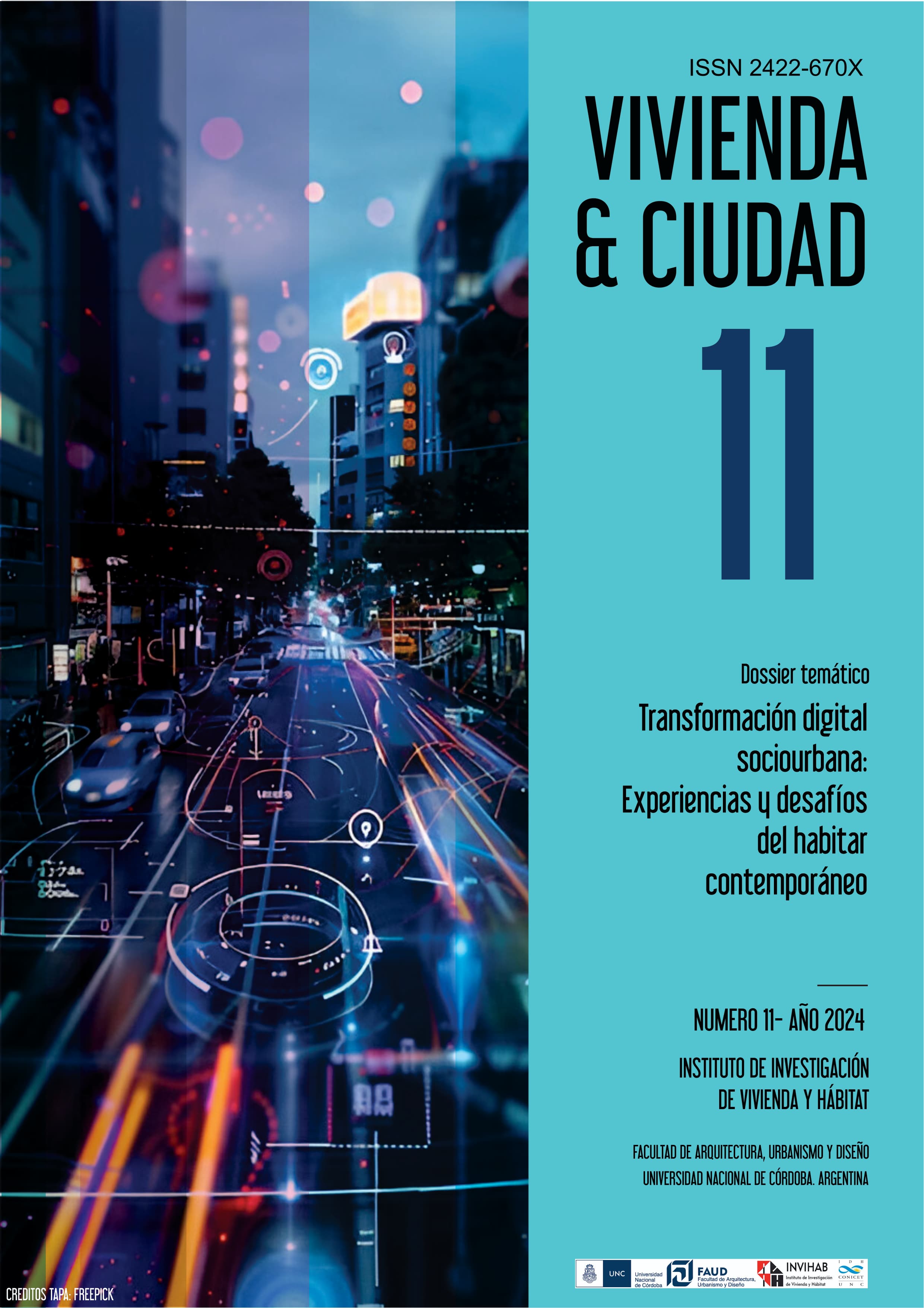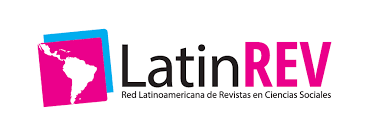Transformation of digital citizenships in Latin América
case study in Argentina, Colombia y México, 2000-2020
Keywords:
Digital Citizenship, Digital Transformation, Socio-Urban Space, Smart Cities, Fourth Generation RightsAbstract
Digital transformation is a phenomenon that involves all sectors and institutions of society, as it allows for opportunities that were impossible just a few years ago, such as participating in institutional decisions. Today, digital citizenship asserts the exercise of power by users of technological devices. This article presents the results of the research project "Digital Citizenship within the Framework of Smart Cities Projects in Latin America," developed at the Center for Advanced Studies (CEA) of the Faculty of Social Sciences at the National University of Córdoba (Argentina). A case study was conducted on official and corporate publications in three Latin American countries (Argentina, Mexico, and Colombia), using a methodological triangulation of content analysis, critical discourse analysis (CDA), and comparative studies. The research found that there are a series of international and national actors that influence the configuration of digital citizenships. A typology composed of three categories is proposed as a form of analysis: digital citizenship as consumers of digital services, informed digital citizenship, and participatory digital citizenship in the construction of society.
References
Banco Interamericano de Desarrollo (BID). (2022). Digitalizar los servicios públicos. Oportunidades para América Latina y el Caribe. BID.
Bethell, L. (1991). Historia de América Latina (cap. II, América Latina colonial: Europa y América en los siglos XVI, XVII, XVIII). Cambridge University Press.
Blinder, D. (2012). Ciencia y tecnología en clave centro-periferia: apuntes para la investigación. Debates Latinoamericanos, 10(19), 41-59.
Borja, S., & Muxí, Z. (2003). Ciudad y ciudadano: un enfoque multidimensional. Electa.
Chamorro, A. N., & Palacio, M. D. (2014). Ciudadanía digital: inclusión y exclusión. Análisis de la habitabilidad en los MOOC. Análisis, 46(85), 303-324.
Comisión Económica para América Latina y el Caribe (Cepal). (2021). Ciudadanía digital en América Latina: revisión conceptual de iniciativas. Cepal.
Dussel, E. (1997). Filosofía de la liberación. Nueva América.
Fairclough, N. (2013). Critical discourse analysis: The critical study of language. Taylor & Francis.
Finquelievich, S. (2016). I-Polis: Ciudades en la era de internet. Diseño.
Finquelievich, S., & Fischnaller, C. (2014). Ciencia ciudadana en la sociedad de la información: nuevas tendencias a nivel mundial. CTS: Ciencia, tecnología y sociedad, 9(27), 11-31.
Gehl, J. (2010). Cities for people. Island Press.
Harrison, C., Eckman, B., Hamilton, R., Hartswick, P., Kalagnanam, J., Paraszczak, J., & Williams, P. (2010). Foundations for smarter cities. IBM Journal of Research and Development, 54(4), 1-16. https://doi.org/10.1147/JRD.2010.2048257
Hernández, R., & Mendoza, C. P. (2018). Metodología de la investigación: las rutas cuantitativa, cualitativa y mixta. McGraw-Hill Education.
Krippendorff, K. (2004). Content analysis: An introduction to its methodology. Sage.
López López, W. M. (2024). Ciudadanía digital en el marco de los proyectos de ciudades inteligentes en América Latina [Tesis doctoral, Universidad Nacional de Córdoba, Centro de Estudios Avanzados]. Doctorado en Estudios Sociales de América Latina.
Mattelart, A. (2009). Un mundo vigilado: cibercultura y libertad. Paidós.
Mignolo, W. D. (2002). The geopolitics of knowledge and the colonial difference. South Atlantic Quarterly, 101(1), 57-96. https://doi.org/10.1215/00382876-101-1-57
Minsburg, N., Gambina, J. C., & Borón, A. (1999). Tiempos violentos: neoliberalismo, globalización y desigualdad en América Latina. Consejo Latinoamericano de Ciencias Sociales (CLACSO).
Monje, D. (2016). El futuro llegó hace rato. En A. Mattelart (Ed.), Crítica y pensamiento para la liberación en América Latina (pp. 121-136). Ciespal.
Mosco, V. (2009). The political economy of communication (2.a ed.). Sage.
Nam, T., & Pardo, A. (2011). Conceptualizing smart city with dimensions of technology, people, and institutions [Ponencia]. Proceedings of the 12th Annual International Conference on Digital Government Research, DG.O 2011, College Park, MD, USA, 12 a 15 de junio.
Quijano, A. (2000). Colonialidad del poder, eurocentrismo y América Latina. En La colonialidad del saber: eurocentrismo y ciencias sociales. Perspectivas latinoamericanas (pp. 201-246). Consejo Latinoamericano de Ciencias Sociales (CLACSO).
Sartori, G., & Morlino, L. (1994). La comparación en las ciencias sociales. Alianza.
Sierra, F. (2007). Pensar la ciudadanía, transformar la ciberdemocracia. Revista de Estudios para el Desarrollo Social de la Comunicación, 4, 11-14.
Sierra, F., & Candón, J. (Coords.). (2020). Democracia digital. De las tecnologías de representación a la expresión ciudadana. Comunicación Social.
Downloads
Published
Issue
Section
License
Copyright (c) 2024 Wilmer Lopez

This work is licensed under a Creative Commons Attribution-ShareAlike 4.0 International License.
Authors who publish in this journal agree to the following terms:
a. Authors retain copyright and guarantee to the journal the right to be the first publication of the work as well as licensed under a Creative Commons Attribution-ShareAlike 4 license.
b. Authors may separately establish additional agreements for non-exclusive distribution of the version of the work published in the journal (e.g., placing it in an institutional repository or publishing it in a book), with an acknowledgement of its initial publication in this journal.
c. Authors are permitted and encouraged to disseminate their work electronically (e.g., in institutional repositories or on their own website) before and during the submission process, as this may result in productive exchanges, as well as earlier and greater citation of published work (See The Effect of Open Access).
d. 4.0 International Creative Commons Attribution-ShareAlike 4.0 License.










